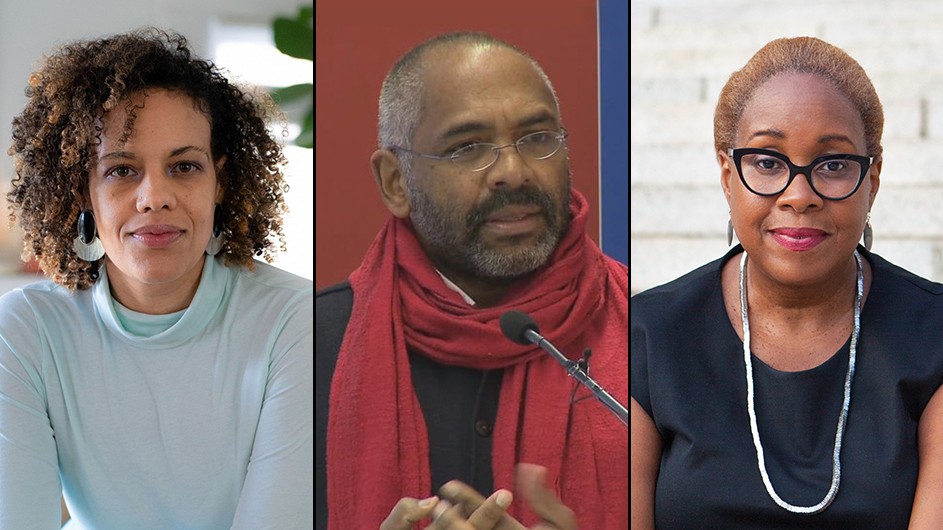Three Columbia professors will receive Guggenheim Fellowships this year to pursue an independent project of their choice. They are among 171 American and Canadian scientists, scholars, writers, and artists selected from nearly 2,500 applicants for a 2023 fellowship.
Since its establishment in 1925, the John Simon Guggenheim Memorial Foundation has given nearly $400 million in fellowships to more than 18,000 individuals; over 125 of its alumni are Nobel laureates and winners of the Pulitzer Prize, Fields Medal, Turing Award, Bancroft Prize, and National Book Award, among other top honors.
Here’s what the Columbians plan to accomplish in the next year:
Shana L. Redmond, a professor of English and Comparative Literature, will be working on a monograph, Dark Prelude: Black Life Before Mourning, which offers a cultural theory of Black listening and life in advance of the fatal execution of No-Knock warrants and traffic stops.
David Scott, the Ruth and William Lubic Professor of Anthropology and chair of the Anthropology Department, will work on a biography of Stuart Hall, a Jamaican-British sociologist, cultural theorist, and political activist who died in 2014. He was, said Scott, “perhaps best known as one of the principal architects of cultural studies, that field-transforming enterprise that has significantly altered the way we think about the humanities and social sciences. From Marxism to diaspora to the visual arts, there was little that Hall’s immensely creative intelligence did not engage in transfiguring ways.”
Mabel O. Wilson, the Nancy and George Rupp Professor of Architecture, Planning, and Preservation at GSAPP, will work on completing a book manuscript. An architectural and cultural history, Building Race and Nation: Slavery, Dispossession, and U.S. Civic Architecture explores how the emerging modern discourses of architecture, nationalism, and race influenced the creation of civic buildings during the first 75 years of the United States (1783–1858).

